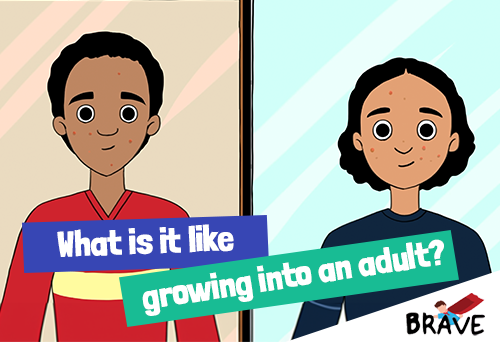




Menstruation begins during the age of 10 to16 years and continues until menopause around the late 40s or early 50s, spanning a considerable period of a person’s lifetime.
Menstruation is a natural and essential process experienced by people with a female reproductive system. 52% of Sri Lanka’s population is women and roughly 5.7 million women menstruate.
In Sri Lanka, the first period holds significant cultural importance, and many parents organize a celebration around it. Various customs are performed during these ceremonies, though not all have a scientific basis. While it's important to appreciate these traditions, it's equally important to remember that they are just customs.
A typical menstrual cycle is around 28 days, but this can vary from person to person. Some may have shorter cycles of 21 days, while others may have longer cycles of up to 35 days. The menstrual cycle is regulated by the hormones estrogen and progesterone. These hormones thicken the uterine lining (endometrium) in preparation for a possible pregnancy. If pregnancy does not occur, the endometrial tissue breaks down and is expelled from the body, resulting in menstrual bleeding.
This is period blood. A period can last for 2-7 days. The nature and color of period blood may change from person to person.
Menstruation is a natural part of life that everyone should be informed about. A clear understanding of the menstrual cycle and the role of hormones can help manage periods more effectively.
Maintaining proper hygiene during menstruation is important for the physical and emotional wellbeing of the person experiencing menstruation. There are a few main factors to consider.
It is important to maintain personal hygiene daily during your period. This includes changing menstrual hygiene products regularly (generally once every 4-6 hours), washing hands before and after handling menstrual hygiene products, and washing the genital area gently with water and some mild soap. How long you can use a menstrual hygiene product depends on the type of product, the amount of period blood, and which day of the period it is.
There are many menstrual hygiene products to suit diverse needs and preferences.
These are small napkins that can be pasted on underwear and contain absorbent materials.



Challenge yourself and your friends to test your knowledge, take the quiz
Access to these contraceptives is made easy through public hospitals and health centers where they are provided for free. Families can talk to doctors and nurses to learn about.

Sexual and reproductive health



Things to Read
It is important to learn about parts of the sexual and reproductive system to enjoy a fulfilling sexual and reproductive...
Sexual and reproductive health



Things to Read
Maintaining sexual and reproductive health
Sexual and reproductive health



Things to Read
Sexual behavior and sexual satisfaction
Sexual and reproductive health



Things to Read
Let's understand the sexual and reproductive system
Sexual and reproductive health



Things to Read
Let's face the challenges of youth
Sexual and reproductive health



Things to Read
Sexual and reproductive health conditions affecting men
Sexual and reproductive health



Things to Read
How to maintain personal hygiene?
Sexual and reproductive health



Things to Read
Sexual and reproductive health conditions that affect transgender individuals
Sexual and reproductive health



Things to Read
Sexually transmitted infections
Sexual and reproductive health



Things to Read
How does a pregnancy happen?
Sexual and reproductive health



Things to Read
Let's face adolescence
Sexual and reproductive health



Things to Read
Reproductive health concerns for Men
Sexual and reproductive health



Things to Read
Things to consider before planing a pregnancy
Sexual and reproductive health



Things to Read
Pregnancy related concerns
Sexual and reproductive health



Things to Read
How to keep my body clean